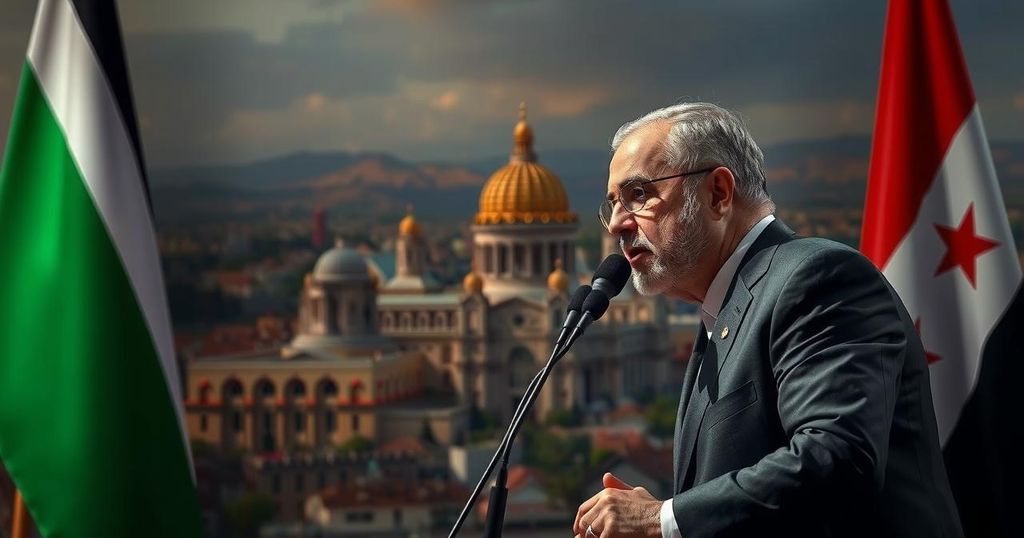Iran’s Foreign Minister Abbas Araghchi is visiting Damascus to support President Assad as Syrian regime faces challenges after Islamist militants captured Aleppo. Assad reconnected with allies amid a counter-offensive strategy. The conflict persists with foreign involvement and territorial disputes intensifying across northern Syria.
Iran’s Foreign Minister Abbas Araghchi is set to visit Damascus to demonstrate support for the embattled Syrian regime as it confronts a pivotal challenge to its authority following the loss of Aleppo to Islamist militants. In a statement to the press, Araghchi emphasized Iran’s commitment to backing President Bashar al-Assad’s government. This visit arrives at a time when Assad’s absence from public engagements raised concerns, particularly after a rapid offensive by Hayat Tahrir al-Sham (HTS) militants.
In response to the mounting pressure, Assad reemerged to communicate with regional allies, assuring them of his government’s capability to fend off the insurgency with external assistance. Historically, the Syrian regime has heavily depended on foreign backing, notably during past conflicts where Russian air support played a decisive role. The Iranian Revolutionary Guards have also been instrumental on the ground, amplifying tensions with Israel, which has increased its military operations against Iranian positions in Syria.
The recent loss of Aleppo has alarmed Assad’s allies internationally, prompting a dialogue between Russian Minister Sergei Lavrov and Araghchi expressing concerns over the escalation. Moreover, Araghchi attributed the territorial gains of the militants to alleged support from the United States and Israel. In contrast, US officials have denied any involvement, attributing the instability to the Syrian regime’s reliance on foreign support.
As fighting intensifies across the northern regions of Syria, Turkish-backed rebel groups and Kurdish forces have begun to seize territories previously held by government forces. Meanwhile, the Syrian government is preparing a counter-offensive in an attempt to regain control, amidst ongoing airstrikes that have resulted in civilian casualties.
The situation in Syria remains fluid, with both the Syrian government and various opposition forces engaged in combat. The international community watches closely, as the outcomes of these conflicts could have significant implications for regional stability and power dynamics.
The ongoing conflict in Syria began in 2011 with widespread protests against President Bashar al-Assad, leading to a devastating civil war that has continued for over a decade. The war has seen major territorial shifts and the emergence of various factions, including Islamist insurgents such as Hayat Tahrir al-Sham. International engagement has been pivotal, with countries like Iran and Russia providing critical support to the Assad regime, thereby significantly influencing the conflict’s landscape. Recent developments, particularly the loss of Aleppo, highlight the precarious nature of the Assad regime’s power, underscoring both foreign dependence and internal dissent.
In summary, Iran’s diplomatic mission to Syria underscores the fragility of Bashar al-Assad’s regime amidst recent territorial losses to Islamist militants. The strategic partnership between Iran and Syria continues to reveal the dynamics of foreign intervention in the conflict, highlighting the delicate interplay of local and international forces. The reaction from the international community, including the US and Israel, further complicates the situation, as all parties assess the implications of the shifting power balances within Syria.
Original Source: www.theguardian.com







